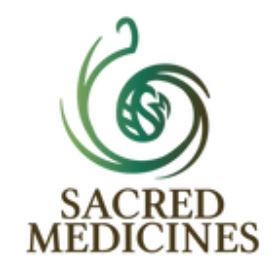Sacred Medicines is a Public Benefit Corporation (PBC) focused on developing “whole plant medicines,” beginning with Ayahuasca tea, to treat mental conditions. Their PBC status means their work is funded via philanthropy, donations, and impact investments. MAPS is Sacred Medicine’s fiscal sponsor for donations.
The organization was founded in 2020 by CEOs Dr. Leanna Standish and Dr. Victoria Hale. Dr. Standish is a neuroscientist, naturopathic physician, and oncologist. Dr. Hale is pharmaceutical scientist and executive and a global health social entrepreneur.
Sacred Medicine is currently working to establish an FDA pathway for Ayahuasca legalization.
As of summer 2021, the corporation had begun designing Phase I clinical trials to establish Ayahuasca tea’s safety and efficacy, which they intend to demonstrate via group therapy.
To be approved, their product, which falls under the FDA category of “Botanical drug product” (BDP), must be in a standardized plant extract form and follow one of 3 regulatory pathways. A cornerstone of Sacred Medicine’s mission is reciprocity, which refers to a commitment to benefit the indigenous communities who originated the use of Ayahuasca and other plant medicines through traditional practices. The group’s website states that the company is “currently developing significant reciprocity initiatives.”
Sacred Medicine also states its support of sustainable agriculture that helps conserve Amazonian habitat where Banisteriopsis caapi vine and Psychotria viridis (Ayahuasca’s core ingredients) grow naturally. This habitat is endangered by climate change, deforestation, and Ayahuasca tourism, and overharvesting, among other threats. The corporation organically grows B. caapi and P. viridis at an ethnobotanical preserve on Hawaii’s Big Island. Naturally cultivating the plants avoid creating chemical waste that is generated from synthetically produced Ayahuasca known as ‘pharmahuasca.’ Sacred Medicine has also declared a commitment to addressing barriers to plant medicine access. Its current strategy includes selecting geographically diverse trial sites, administering its products in group settings, and offering tiered pricing.
